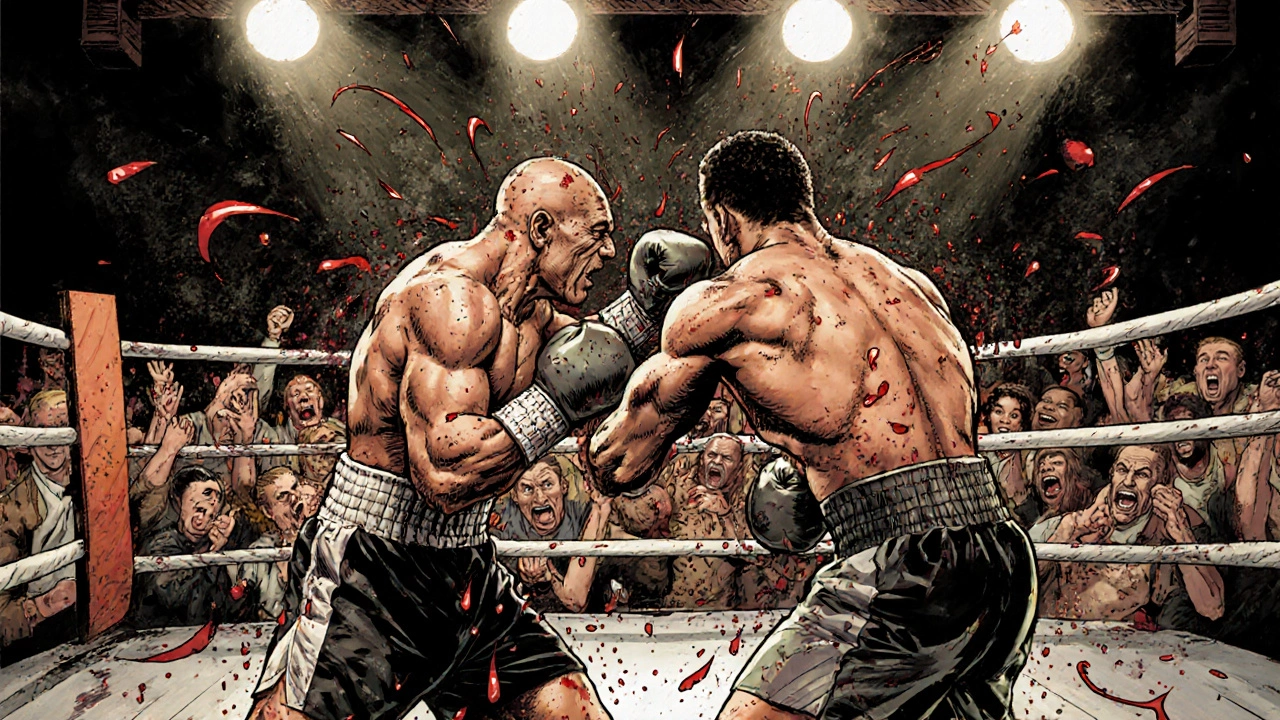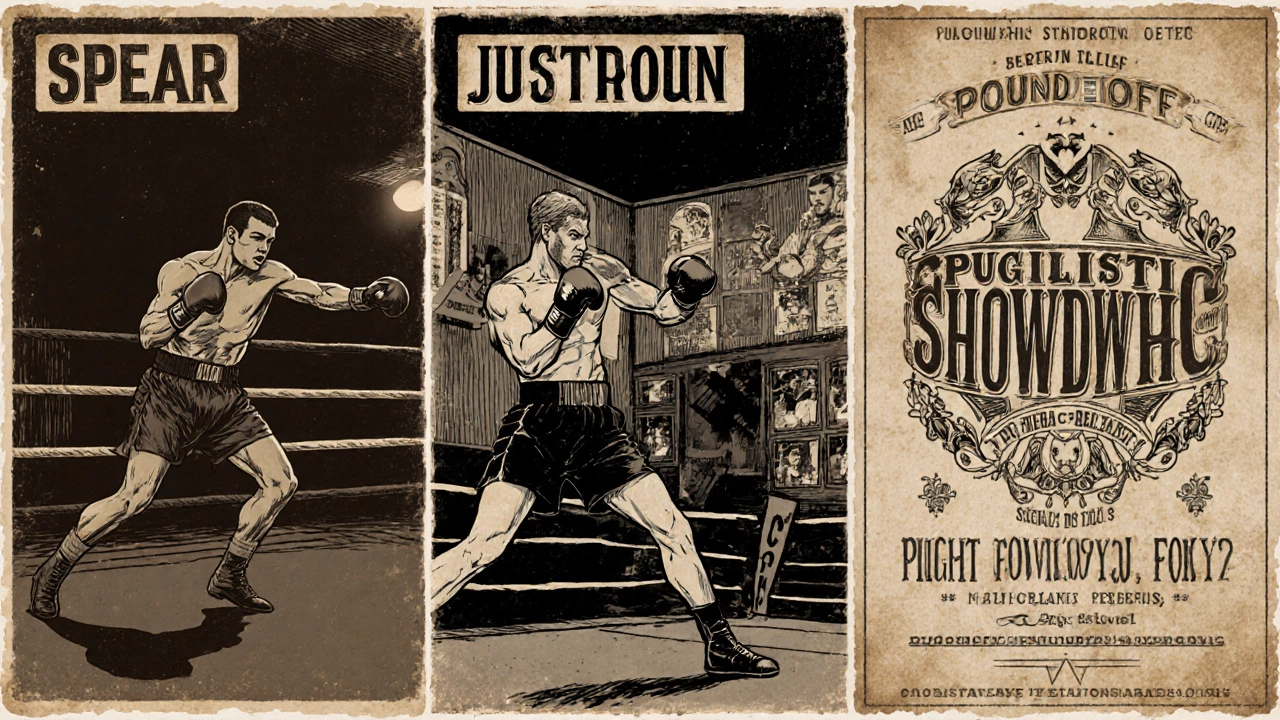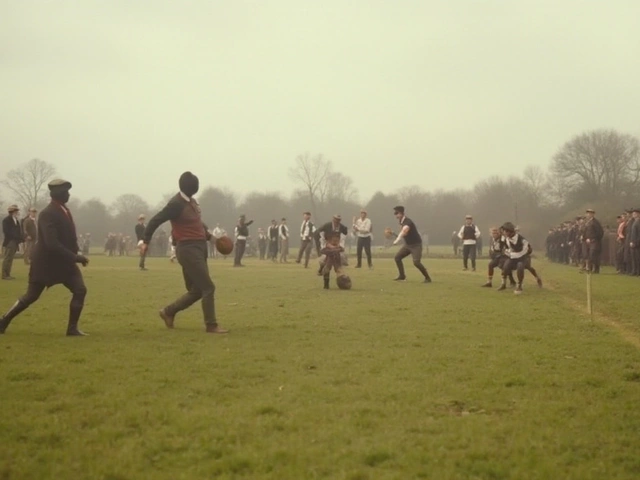
Boxing Matches October 13, 2025
Common Slang Terms for a Boxing Match Explained
When fans start talking about a boxing match, they rarely say just "boxing match." The conversation instantly fills with nicknames, abbreviations, and colorful phrases that give the sport its street‑level vibe. Knowing those nicknames can make you sound like you belong in the crowd, not like an outsider reading a rule book.
Quick Takeaways
- "Bout" is the neutral, everyday term for a scheduled fight.
- "Brawl" and "slugfest" imply a very aggressive, crowd‑pleasing fight.
- "Showdown" and "clash" are used for high‑stakes matchups.
- Regional slang varies - the UK loves "spear" while the US leans on "pound‑off."
- Use the right term for the right setting to avoid sounding fake.
Why slang matters in boxing culture
Boxing has always lived at the crossroads of sport and street culture. From the gritty gyms of the Bronx to the royal boxes of London, fighters and fans develop a shorthand that captures excitement, risk, and identity. Dropping the right term signals that you understand the drama, not just the statistics.
For journalists, commentators, and even casual fans, the choice of word can set the tone of a story. A "bout" feels clinical, while a "brawl" feels raw. That tonal shift influences how the audience imagines the fight before it even starts.
Most popular slang terms and what they mean
Below is a rundown of the slang you’ll hear most often. Each entry includes the literal meaning, typical usage, and a quick tip on when to use it.
- Bout - The standard, neutral word for any scheduled fight. Use it in news headlines and formal write‑ups.
- Brawl - Conveys an all‑out, chaotic melee. Perfect when both fighters throw wildly and the crowd roars.
- Slugfest - Similar to "brawl" but emphasizes heavy punching power. Good for fights with big knock‑outs.
- Showdown - Highlights a clash between two top‑ranked fighters. Use it for championship fights or long‑awaited rematches.
- Clash - A slightly softer version of "showdown," often used for rivalries that have a personal backstory.
- Rumble - Implies a noisy, energetic atmosphere. Great for describing fights on big stages with loud crowds.
- Undercard - Refers to the preliminary fights that happen before the main event. Mention it when talking about the whole event schedule.
- Main Event - The headline fight of the night. Use it when you want to draw attention to the biggest attraction.
boxing slang isn’t limited to these eight, but mastering them gives you a solid foundation.

Side‑by‑side comparison
| Slang | Meaning | Typical Setting | Formality |
|---|---|---|---|
| Bout | Scheduled fight | Press releases, official schedules | Neutral |
| Brawl | Chaotic, high‑intensity fight | Live commentary, fan chats | Informal |
| Slugfest | Power‑packed knockout battle | Post‑fight analysis | Casual |
| Showdown | High‑stakes matchup | Promo videos, hype articles | Enthusiastic |
| Clash | Rivalry‑driven fight | Social media threads | Relaxed |
| Rumble | Noisy, crowd‑charged bout | Live event recaps | Playful |
| Undercard | Pre‑main fights | Event programmes | Neutral |
| Main Event | Headline fight | Tickets, marketing material | Neutral |
Regional variations you might hear
Different countries have their own flavour of slang. In the UK, a fight is often called a "spear" when it’s a swift, hard‑hitting bout. In Australia, "pound‑off" appears in casual talks, especially around local club matches. In the US, "pugilistic showdown" is a tongue‑in‑cheek phrase you’ll hear from older fans who love to sound literary.
Knowing the regional twist helps you blend in when you travel or chat online with fans from different locales.
How to drop the slang naturally
- Listen first. Pick up the terms that dominate the conversation you’re in.
- Match the energy. Use "brawl" when the fight is fierce, but stick with "bout" for a polite recap.
- Mix it with facts. Say, "The main event was a slugfest that ended in a second‑round KO," and you’ll sound both knowledgeable and vivid.
- Keep it short. Boxing fans love punchy language-no need for long sentences.
- Practice in context. Write a quick post‑fight summary using two or three slang terms, then read it aloud.

Common pitfalls and how to avoid them
Mixing boxing slang with MMA lingo can confuse listeners. "Ground‑and‑pound" belongs to mixed martial arts, not boxing. Likewise, "smackdown" is a wrestling term that feels out of place in a boxing ring.
Another mistake is over‑using hype words. Saying every fight is a "slugfest" dilutes the impact. Reserve the most intense terms for truly explosive bouts.
Next steps for the curious fan
If you’re ready to sound like a seasoned fan, start by writing a short recap of the latest fight you watched. Use at least three slang terms from the list above. Then share it on a boxing forum or with friends and ask for feedback. Over time, you’ll develop an instinct for which word fits each scenario.
Frequently Asked Questions
Is "bout" the same as "fight"?
Yes, "bout" is the neutral term for any scheduled boxing contest. It’s the safest word for news articles and official schedules.
When should I use "brawl" instead of "slugfest"?
Use "brawl" when the fight feels chaotic and both fighters are exchanging a lot of punches. "Slugfest" is better when the emphasis is on raw punching power and knock‑outs.
Do British fans really say "spear"?
In some UK fan circles, especially in underground gyms, "spear" is slang for a quick, hard‑hitting bout. It’s not mainstream, but you’ll hear it when talking to long‑time British supporters.
Can I use "showdown" for amateur fights?
Absolutely. "Showdown" simply highlights a matchup with a lot of hype, regardless of the competition level.
Is "undercard" considered slang?
It’s more of an industry term than street slang, but it’s used informally when fans discuss the whole event lineup.




